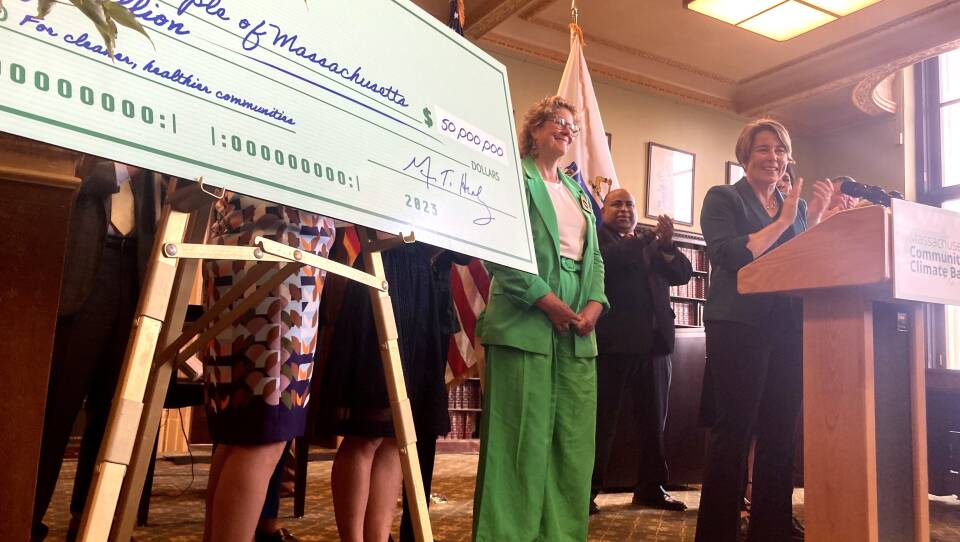Massachusetts is putting up $50 million dollars in state money to launch a community climate bank, an initiative Gov. Maura Healey says can both accelerate the transition to clean energy and help ease high costs of living in the state.
Several other states already have their own versions of “green banks” that lend money to developers, homeowners and others for clean energy projects. Healey says Massachusetts’ bank is unique among them because it will focus on affordable housing.
“We're going to be able to innovate and finance deep energy retrofits, on-site electric vehicle charging and solar projects that will demonstrate the viability of these technologies at a community-wide scale, in addition to doing things that you all understand — insulation, better windows, better roofs,” Healey told a crowd gathered in the State House library for her announcement Tuesday.
She said first-time homebuyers “could get access to technologies that slash both their emissions and their energy bills” through the climate bank, and nonprofit developers will “get access to capital that makes possible a net-zero development serving hundreds of families.”
Healey did not offer a specific timeline for when the bank will begin lending but said she hopes to be “working towards a plan for particular projects in communities” over the next few months.
Along with the $50 million in seed money from the state Department of Environmental Protection, the Healey administration hopes the bank will attract private-sector investments and position the state to compete for federal funds. Together, the different sources of money would expand the pool available to loan out for green building and retrofitting projects.
State law commits Massachusetts to achieving net-zero carbon emissions by 2050. State Sen. Marc Pacheco, the author of a 2008 law that created the state's emissions-reduction framework, said that to reach that 2050 target, Massachusetts must "get to work renovating and electrifying our dated housing stock as soon as possible."
The building sector accounts for more than a quarter of greenhouse gas emissions in Massachusetts, and Healey said that number can rise as high as 70% in some of the state's cities. Along with the targets set by law, the state's clean energy and climate plan calls for a 49% reduction in emissions from residential heating by 2030.
Boston has a "pipeline full of projects already" that could benefit from the climate bank, Mayor Michelle Wu said.
“Boston is one of those communities where more than 70% of our emissions come from buildings, and of those buildings, many of them are the beautiful, historic but much older homes that very much need support in energy retrofits that will secure what it means to live in our communities for a long time to come,” Wu said.





